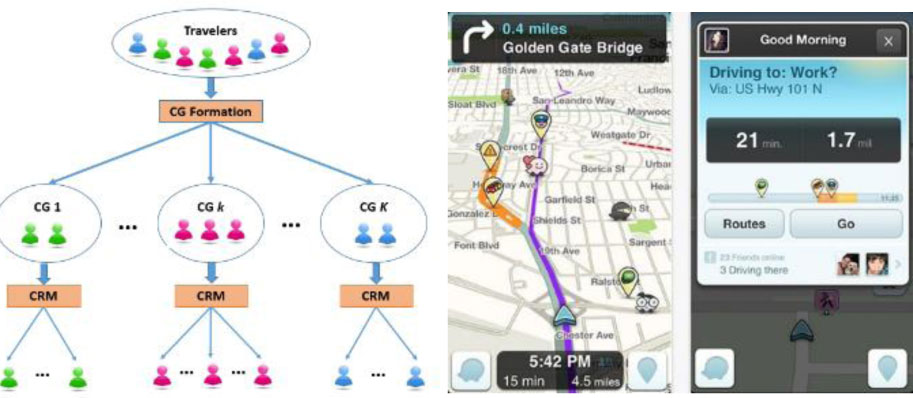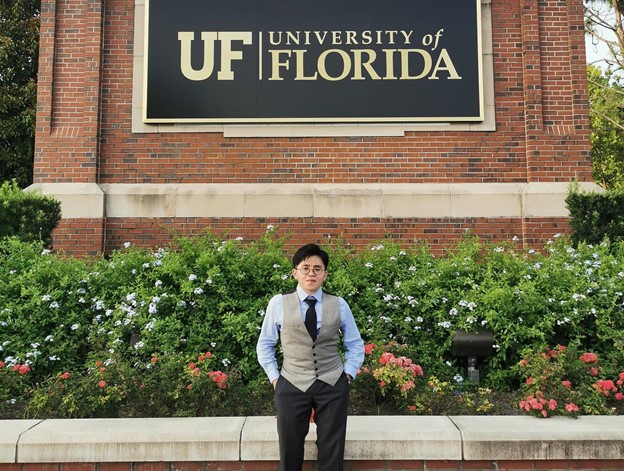
Several apps such as Waze and Google Map provide ways for travelers to share routing decisions with each other. These apps aggregate the data to provide information on the best routes to take and the time it takes to arrive at their destinations.
Apps do this via coordinated routing schemes (CRMs). But exactly who are the travelers that others should be coordinating with? CRMs have yet to determine this question. This was the goal of a National Science Foundation (NSF) funded project led by Dr. Lili Du, an Associate Professor in the UF Department of Civil & Coastal Engineering. The project is titled “Forming Coordination Group for Coordinated Traffic Congestion Management”.
Wang Peng, a doctoral candidate in civil engineering was tasked with addressing this question and in developing a methodology. He worked on this project along with Dr. Du, his doctoral dissertation adviser. The main goals of the project were to identify the coordination potential between travelers and to group them. The new coordination groups were implemented independently into clusters, which were effective at providing routing solutions for travelers without over compromising system performance.
Part of Peng’s work included developing an algorithm, which was eventually successful at identifying clusters of travelers and their chosen routes.

“An adaptive centroid-based clustering algorithm was designed to form coordination groups/clusters and was able to locate a ‘good’ number of clusters,” he said. “Also, properly forming coordination groups greatly improved the computation efficiency for the implementation of CRM with only minor compromises in system performance such as total system travel time.”
A forthcoming paper on this topic by Wang and his adviser will be published in Transportation Research Part C: Emerging Technologies. The paper is titled “Forming Coordination Group for Coordinated Traffic Congestion Management”.
The results of the NSF study have provided an approach for use in ridesharing, parking, and evacuation apps routinely accessed by many users competing for routes over a road network.